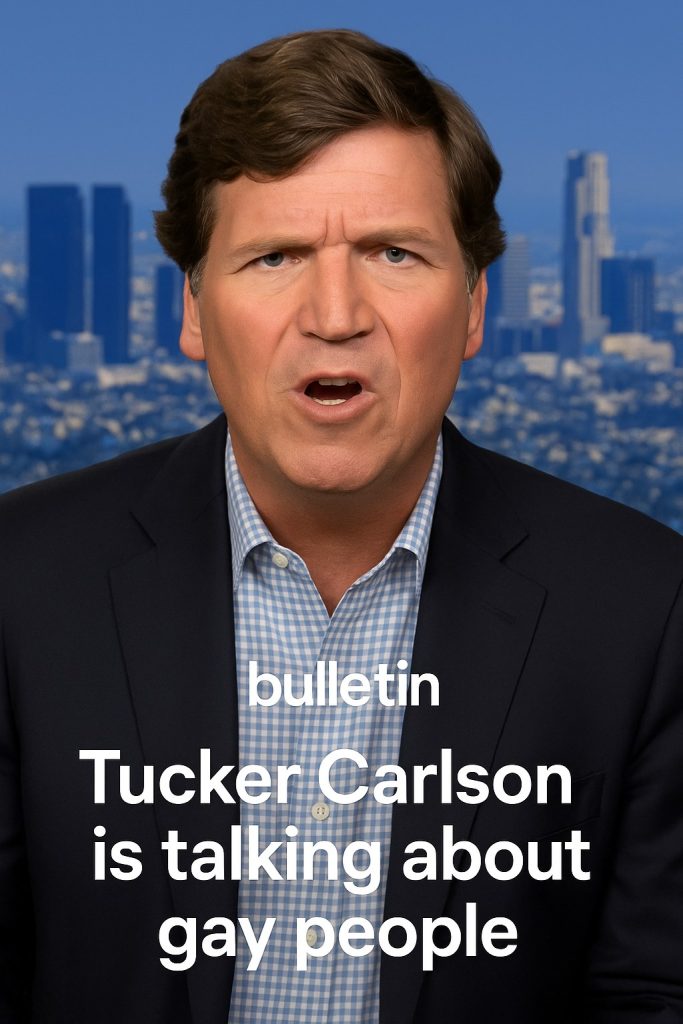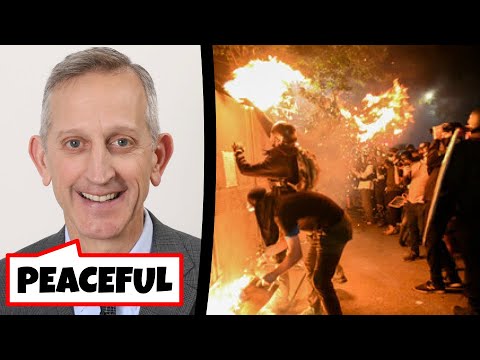In a recent and widely debated broadcast, prominent television commentator Tucker Carlson once again turned the spotlight onto the LGBTQ+ community, intertwining his commentary with a perplexing critique of “multiculturalism.” Carlson’s remarks have reignited public conversation and drawn significant backlash, highlighting the ongoing tensions surrounding cultural diversity and LGBTQ+ rights in media discourse.
During his latest segment, Carlson argued that multiculturalism as an ideology is being weaponized to impose what he described as a “radical social agenda,” with particular emphasis on the visibility and acceptance of gay people in American society. His comments suggested that the promotion of LGBTQ+ issues under the banner of multiculturalism is part of a broader cultural shift that, in his view, threatens traditional societal norms.
Critics were quick to highlight the inconsistent logic in Carlson’s rant, pointing out that multiculturalism, by definition, is about embracing diverse cultures and identities — including those within the LGBTQ+ community. However, Carlson framed the inclusion of LGBTQ+ individuals as a divisive tactic rather than a natural extension of cultural plurality.
In addressing the issue, Carlson lamented what he perceives as an “unrelenting focus” on sexual orientation within multicultural initiatives, implying that such emphasis is exclusionary and disruptive. These remarks come amid a wider cultural debate over the role of identity politics in shaping public policies and social values. Carlson’s claims were met with sharp criticism from LGBTQ+ advocates, who assert that his rhetoric perpetuates misunderstanding and discrimination.
This is not the first time Carlson has faced controversy for his commentary on LGBTQ+ topics. Over the past several years, he has frequently featured the community in his discussions, often casting their visibility as symptomatic of a larger cultural problem. His critics argue that these repetitive characterizations contribute to stigmatization rather than fostering a constructive dialogue about inclusion and rights.
The backlash to Carlson’s recent remarks has been visible across social media platforms, where users and activists expressed concern about the impact such influential voices can have on public opinion. Many have called for a more nuanced conversation that recognizes the intersectionality of identity without resorting to oversimplified or alarmist narratives.
Observers note that Carlson’s approach aligns with a broader trend in certain media circles that portray multiculturalism and LGBTQ+ advocacy as contentious issues tied to political and cultural identity. This polarizing framing tends to deepen divisions rather than bridge understanding across different communities.
Despite the controversy, Carlson continues to command a large audience, with his statements often sparking heated discussions that echo beyond the television studio. As debates around multiculturalism and LGBTQ+ rights intensify nationwide, his latest remarks serve as a reminder of how fraught and complex these conversations remain in the public sphere.
As the dialogue unfolds, many urge a move toward greater empathy and factual engagement, emphasizing respect for diversity without reducing individuals to mere symbols in a cultural battle. Whether Carlson’s rhetoric will influence policy or public attitudes remains to be seen, but the fervor it has elicited underscores the enduring cultural crossroads facing contemporary society.


